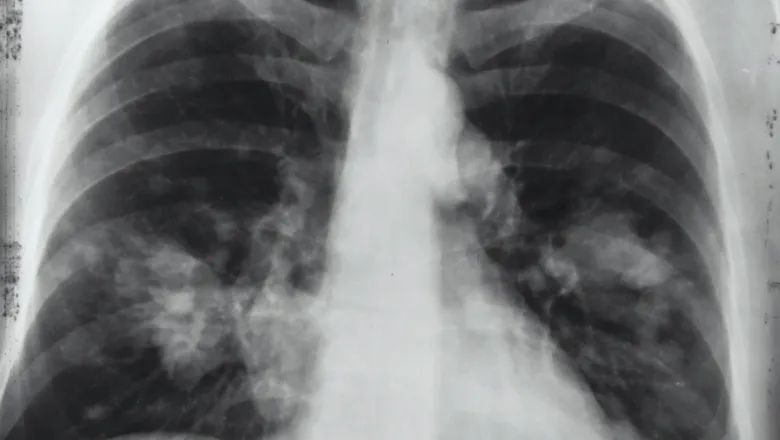A common antiparasitic drug could block lung damage in people with coronavirus, new research published today in Nature has found.

Using robotic technology to screen over 3,000 approved drugs known to be safe in humans, researchers found Niclosamide – a drug used to treat tapeworm infections – was effective at stopping the viral replication and fusion of lung cells seen in patients with Covid-19.
The researchers say that this drug could be a very promising treatment to ensure people infected with the SARS-CoV-2 virus do not go on to develop serious long-term lung damage.
The team at the School of Cardiovascular Medicine & Sciences previously studied the lungs of 41 people who died from Covid-19. They found that several lung cells were much larger than usual in 90 per cent of patients. Multiple lung cells had joined together to create large virus-infected lung cells.
They discovered that the 'Spike' protein - that sits on the outer surface of coronavirus - is responsible for driving a unique series of events that lead to this abnormal and damaging fusion of lung cells.
Coronavirus invades healthy cells when its Spike protein binds to the ACE-2 molecule - the 'entry point' for the virus. When healthy cells were infected with SARS-CoV-2 the newly-infected cells then displayed the viral Spike protein on their surface.
Researchers found that this activated a cascade of events and 'switched on' a protein called TMEM16, which caused the cells to reach out and fuse with neighbouring cells.
By adding Niclosamide – which blocks the actions of TMEM16 – to healthy lung cells with the virus, the researchers found that lung cell fusion was abolished and viral replication suppressed. The drug also protected cells against Covid-19-induced cell death.
The researchers now hope to repurpose Niclosamide and test it in UK human clinical trials as a treatment for Covid-19.
Coronavirus is a complex virus. It can persist for a long time in infected people's lungs, where cells infected by the virus can cause additional damage to normal cells.– Professor Mauro Giacca, lead author of the study at King's College London BHF Centre of Research Excellence, said:
"Even though we now have a vaccine, it's still vital that we find new treatments to prevent and reverse the long-term devastation that these infected cells cause. By blocking TMEM16, Niclosamide looks like it has the power to do just this. We now plan to begin a clinical trial so Niclosamide can be quickly repurposed as a Covid-19 treatment."
Professor Ajay Shah, Director of the King's College London BHF Centre of Research Excellence, said: "This study represents a remarkable team effort combining many unique scientific skills across King's. By identifying intricate details of how the SARS-CoV-2 virus damages cells, it opens the door to new drugs against COVID-19."
Professor Metin Avkiran, Associate Medical Director at the British Heart Foundation, said: "This exciting study has not only revealed a process by which the virus damages lung cells but also identified an existing drug which can block that process. More research is needed to determine the benefits of the drug in treating patients with Covid-19 and to explore if it could also put the brake on dangerous processes in other cells leading to blood clots, which often develop with severe Covid-19."
The research was supported by the British Heart Foundation, Wellcome, BBSRC, European Research Council (ERC) and the National Institute for Health Research (NIHR) Biomedical Research Centre.
The research was a collaboration between King's College London and Imperial College London, UK and the University of Trieste and International Centre for Genetic Engineering and Biotechnology in Trieste, Italy.






